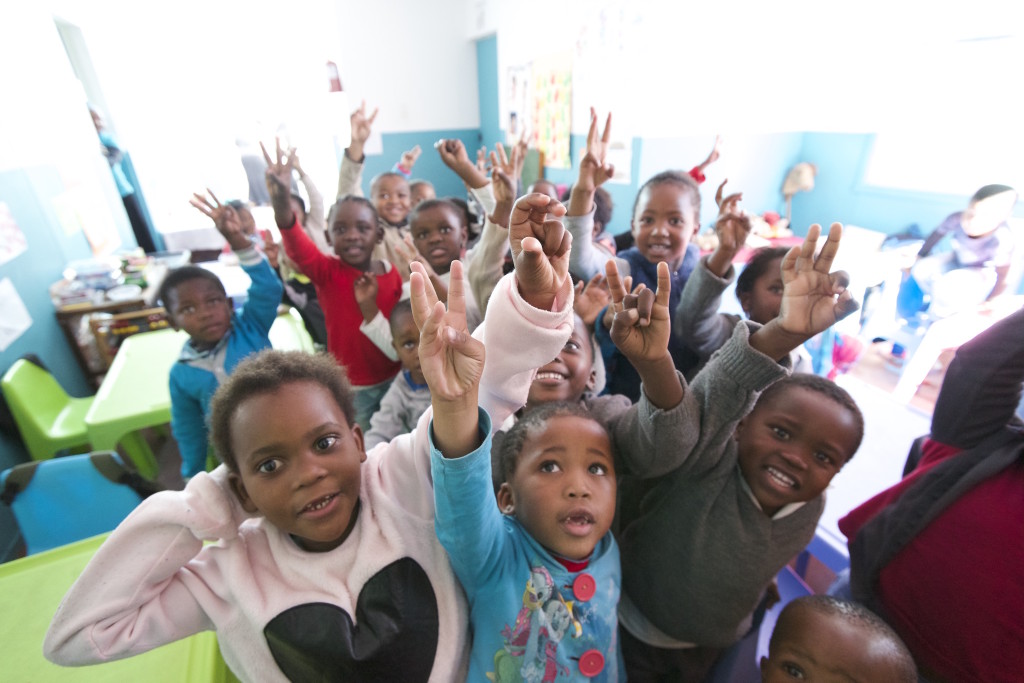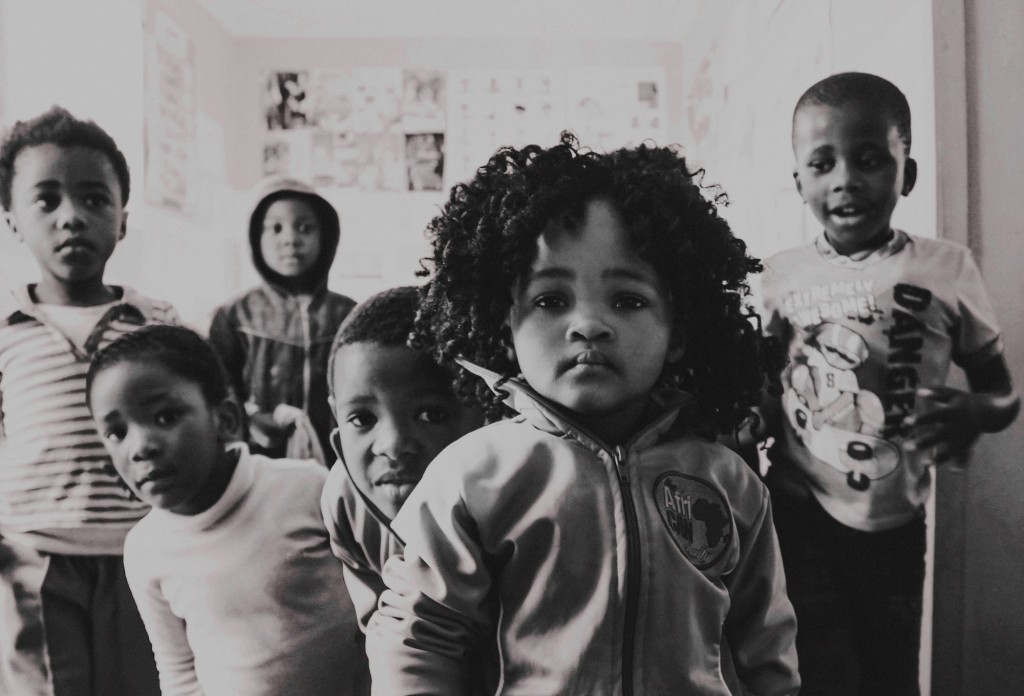There are lots of facts and figures that can prove kids perform better, develop better and are, frankly, happier if they have a regular, nutritious breakfast as opposed to those that don’t. But none of us need to be told that a healthy breakfast for kids between 1 and 6 years old makes a huge positive impact on their lives. Simply, hungry children cannot learn.
The end of 2015 saw The United Nations global Millennium Development Goal (1c), to halve the 1990 rates of children underweight, unreached(1). This is an extremely potent statistic for South Africa, as “under nutrition has stayed roughly constant in South Africa since the early 1990s”, according to the World Bank(2). Not enough is being done to ensure that every child in South Africa has the chance to a healthy and happy start in life.
There’s an alarming number of stunted children due to vitamin deficiency and these kids don’t have the ability to participate in their education to the best of their ability. They’re being failed with zero chance of being able to remedy the problem themselves.
UNICEF has stated that “every year about 75,000 children do not make it to their fifth birthday” and that “75% of newborn babies die in their first week of life” because of malnutrition(3). Based on these statistics, even before birth, the children living in South Africa are disadvantaged because of limited access to nutritious meals. With a nutritious breakfast from the start, we can turn this statistic around, and children in South Africa can be set on a healthier pathway to achieving a fulfilling education.
If a malnourished child lives beyond the age of five, their struggles with malnutrition and stunted development continue throughout their formative years, leading to further stunted growth, delayed sexual milestones and a series of other serious health issues such as eye problems and “even epilepsy”(4). Access to healthier meals with proper nutritious value at a young age is essential to prevent these future health problems.
Statistics are great for gaining a basic understanding of a humanitarian crisis. But it is important to look at real life experiences to gain a better understanding of what these statistics actually mean to kids in South Africa, and how they can be used to find a solution. Journalist Emilie Lob discusses, in Malnutrition Cripples Child Development in South Africa, that these statistics, although present and rising, are seemingly “absent from public debate”(5). Although South Africa may appear to be “food-secure”, the realities of the situation are far more than just numbers(6). The daily reality is that access to healthy food is limited, and it is children who suffer the most. The food security of a nation means nothing if its younger generation cannot be fed. To support the younger generation of South Africa, a discussion on nutrition must be present in public debate, both national and international. Steps must be taken to provide nutritious food so that a child is given a chance to succeed in their education and their future. They are not simply a statistic.

The Afri-CAN Free School Breakfast Programme is just one of the many outreach programmes the charity has across South Africa, focusing on childhood development. We provide young children with not only a nutritious meal, but an equal opportunity to succeed in their education by offering comprehensive support for Educational Development Centres (ECDs) in townships supporting the poorest and most vulnerable of those communities. We focus on the realities these children face in the hope that we can improve their daily lives and brighten their futures.
Through this programme, we want to see that every child on our watch has a way out of poverty and a shift towards prosperity. With a healthy breakfast (and the other aspects of the ECD support programme), each child has the benefit of a nutritious meal to lead a healthy and happy life, and has a clean safe place to begin their education and road out of poverty.
In 2016, The Afri-CAN Charity will provide over 120,000 free school breakfasts to the most vulnerable children between the ages of 1 and 6 years in the townships of Cape Town. We intend to grow this number to 1,000,000 free school breakfasts a year. We believe that this programme is the very first step needed to bring these children out of the cycle of poverty afflicting so many.
We want to give you a chance to be a critical part of the Free School Breakfast Programme. By donating through the website, you are helping us help the most vulnerable children in the world gain better access to nutritious meals, and helping them to take the first steps out of poverty.
Maryam Mazraei, Communications Director, Afri-CAN Charity said, “We are all passionate about the numerous programmes created by the ACC but none grabs the heart more than the Free School Breakfast Programme. The positive impact of feeding the kids these great breakfasts is immediate and remarkable. The feedback we get and our analysis has shown that we are making a real difference in the early lives of these kids. As Head of Communications I’m going to ensure that we get the message out there that every single breakfast makes a huge difference. I want to get an army of support for these kids, the poorest of the poor today but tomorrow doctors, scientists, teachers – who knows? Frankly, for me in truth, ‘happy’ would do…”
Stefan Allesch-Taylor CBE, Afri-CAN Charity Chairman said, “There’s no doubt the programme people really understand and love is the Free School Breakfast Programme. I don’t think there’s any impact more immediate and tangible. We’re fighting to ensure every youngster in the townships has a healthy breakfast. We invite you to fight alongside us and to give these vulnerable kids the first tool to build a fulfilling life for themselves, without which their prospects are extremely bleak.”
Please donate: africancharity.org/free-school-breakfasts
For more information, email our Programme Director, Camille Paterson: [email protected]
References:
(1) Nutrition at a Glance: South Africa”, World Bank
(2) Nutrition at a Glance: South Africa”, World Bank
(4) Nutrition at a Glance: South Africa”, World Bank
(5) Iob. 2014
(6) Iob, Emilie. “Malnutrition Cripples Child Development in South Africa”, 2014
